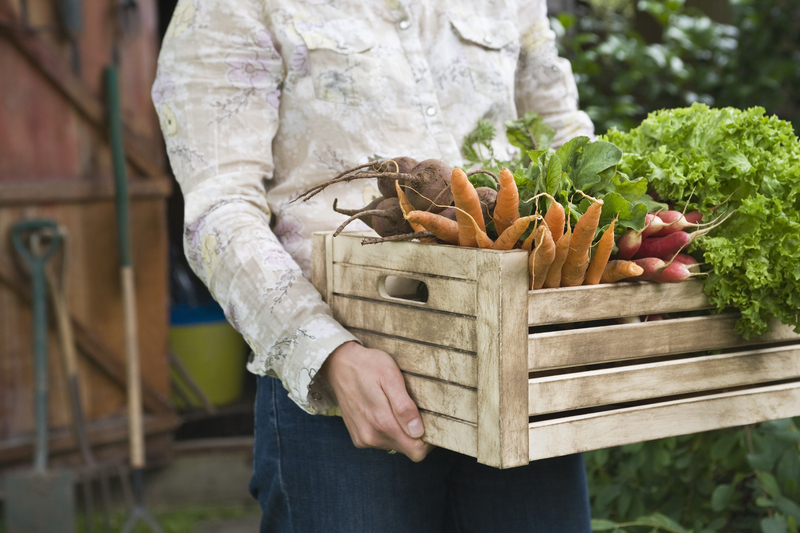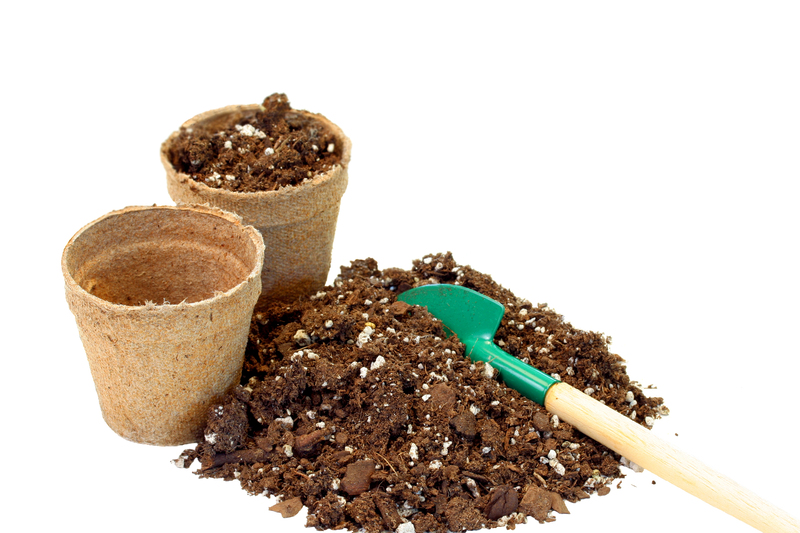Navigate your first garden with 9 crucial beginner tips
Posted on 23/09/2025
Navigate Your First Garden with 9 Crucial Beginner Tips
Starting your journey into gardening can be both exciting and overwhelming. Whether you have a vast backyard or a tiny balcony, nurturing your own garden brings joy, fresh produce, and a deep connection to nature. If you've ever dreamed of growing your own flowers, herbs, or vegetables but weren't sure where to begin, this comprehensive guide is for you. Here, you'll discover nine essential gardening tips for beginners to help you navigate your first garden and bloom into a confident gardener.
1. Assess Your Space and Choose the Right Spot
Before you plant a single seed, it's critical to evaluate your gardening space. The location of your first garden can influence everything from the plants you grow to the success of your harvest. Here are a few factors to consider:
- Sunlight: Most edible plants and flowers require at least 6 to 8 hours of sun per day. Observe your space throughout the day to identify sunniest spots.
- Accessibility: Make sure your garden is easily accessible for watering, weeding, and harvesting.
- Soil quality: Good soil equals good gardening. Consider doing a basic soil test or consult your local nursery for advice.
Pro Tip: If space is limited or your soil is poor, consider raised beds or container gardening. Both methods make it easier to control soil quality and drainage.

2. Start Small and Simple
One of the most common beginner mistakes is taking on too much at once. It's tempting to plant everything you see at the garden center, but simplicity is key for novices. Focus on a manageable planting area to gain confidence and skills without feeling overwhelmed.
- Begin with a garden bed no larger than 4 x 8 feet, or a few large containers.
- Pick a handful of easy-to-grow plants; mixing flowers and edibles keeps things interesting.
Remember, it's always better to expand a healthy, thriving garden than to struggle with a patch that's too ambitious.
3. Understand Your Local Climate and Seasons
Every region has unique climate patterns--frost dates, rainfall, temperature highs and lows--that shape the growing season. Successful garden navigation starts with understanding your local environment:
- Research your USDA hardiness zone (USA) or equivalent in your country to recognize the best plants for your climate.
- Know your last spring and first fall frost dates.
- Time your seed starting, planting, and harvesting to fit the growing season.
Visit local plant nurseries or talk to experienced gardeners for personalized insights.
4. Choose Foolproof Plants for Your First Garden
Some plants are more forgiving and resilient, making them ideal for first-time gardeners. Here are some excellent choices for beginners:
- Vegetables: Leafy greens (lettuce, spinach), radishes, bush beans, cherry tomatoes, and zucchini.
- Herbs: Basil, parsley, mint, and chives--great for pots or beds.
- Flowers: Marigolds, zinnias, sunflowers, cosmos, and nasturtiums.
These plants grow quickly, tolerate occasional neglect, and reward you with bountiful yields or vivid blooms. Always read plant labels and local guides to ensure a good fit for your site.
5. Learn the Art of Soil Preparation
Your gardening journey truly blossoms when you become friends with your soil. Healthy soil creates the foundation for vigorous plants. Here's how to prepare it:
- Remove weeds, rocks, and old roots from your bed or pots.
- Add organic matter--compost, aged manure, or leaf mold enrich the soil with nutrients and improve structure.
- If using containers, opt for a high-quality, well-draining potting mix rather than garden soil.
- Test your soil for pH and nutrient levels if possible, and amend as needed based on plant preferences.
Great soil preparation is a crucial gardening tip every beginner should master!
6. Master Basic Watering Techniques
Water is vital, but overwatering and underwatering are common beginner gardening mistakes. Achieve the right balance using these strategies:
- Water deeply but less frequently to encourage roots to grow deep.
- Check soil moisture by sticking your finger 1-2 inches below the surface; water only if it feels dry.
- Morning is the best time to water, reducing evaporation and fungal risk.
- Consider installing mulch to retain moisture and keep roots cool.
Avoid watering leaves directly, as wet foliage can invite diseases. Focus on the base of the plant for best results.
7. Feed your Plants for Success
Just like humans, plants benefit from regular feeding. Organic matter added at planting time helps, but periodic fertilizer keeps growth steady:
- Use slow-release organic fertilizers for simpler, low-maintenance nourishment.
- Follow package instructions carefully--over-fertilizing can harm young plants.
- Compost tea or fish emulsion are gentle, beginner-friendly fertilizers.
Feeding your garden not only boosts plant health but can enhance flavor and flower production.
8. Practice Patience and Pest Prevention
Good things take time. New gardeners often expect instant results, but plants need weeks to settle, grow, and mature. Along the way, you might encounter common garden pests and challenges:
- Inspect plants regularly for signs of pests or diseases.
- Encourage natural predators like ladybugs for organic pest control.
- Remove dead or diseased leaves promptly to prevent spread.
- Research safe, beginner-friendly treatments if problems arise.
Patience and vigilance are key--nature works at its own pace, but your care makes all the difference!
9. Document, Learn, and Celebrate Every Milestone
Finally, one of the most rewarding gardening tips for beginners is to document your progress. Use a notebook, app, or photo journal to record:
- What you planted and when
- Weather patterns and notable events
- Successes and struggles
- Harvest dates and yields
Reviewing your notes each season reveals valuable lessons for future improvements and celebrates how much you've grown as a gardener. And don't forget to share your blooms or harvest with friends--gardening is made for sharing!

Bonus: Embrace the Journey and Join the Community
Gardening is a lifelong learning adventure. Each year brings new growth, lessons, and surprises. Don't be afraid to ask questions, visit public gardens, or connect with gardeners online and in your neighborhood. Community support is a powerful tool when navigating your first garden--many seasoned green thumbs are eager to help beginners thrive!
Conclusion: Grow Your Confidence, One Plant at a Time
Taking your first steps into gardening may seem daunting, but with these nine beginner garden tips and a bit of patience, you'll soon enjoy the beauty and bounty of your own green space. Assess your area, start small, choose reliable plants, prepare your soil, and water wisely. Most of all, relish every success and setback as you discover the joys of navigating your first garden. Happy gardening!
Quick Checklist: 9 Essential Tips for First-Time Gardeners
- Evaluate your space and sunlight
- Start with a manageable plot or containers
- Understand your climate and growing season
- Pick easy-to-grow plants
- Prepare your soil well
- Water correctly and consistently
- Feed your plants responsibly
- Stay patient and manage pests organically
- Keep records and enjoy the journey
Ready to take the first step? With these expert gardening tips for novices, your first garden will flourish--and so will your love of gardening!
Latest Posts
Crafting Your Own Miniature Garden: The Container Gardening Approach
Spark Imagination with a Kid-Appropriate Garden
Navigate your first garden with 9 crucial beginner tips
Craft a Harmonious Zen Garden with Innovative Design Ideas
Weather-Wise: Ensuring Your Garden's Survival in Severe Storms

